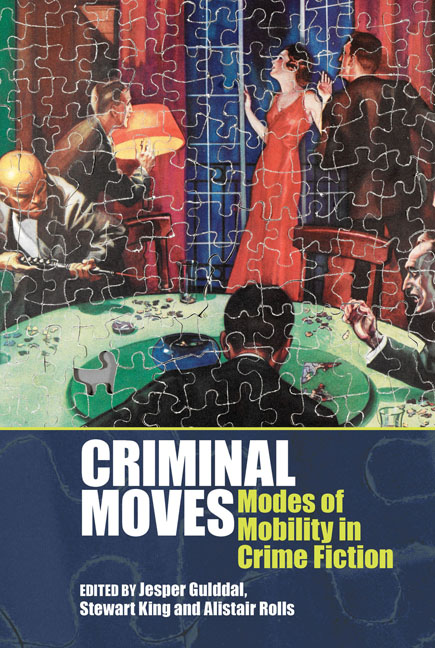Criminal Moves: Towards a Theory of Crime Fiction Mobility
Summary
Crime fiction, as a constituent member of the field of ‘popular literature’ and an object of literary criticism, has historically been encumbered by a set of restrictive preconceptions: that the genre does not warrant detailed critical analysis, that genre norms and conventions matter more than textual individuality, and that comparative or transnational perspectives are secondary to the study of the core British-American canon. The present volume challenges the distinction between literary and popular fiction, which we regard as a relic of a previous, elitist view of literature. Also, and more importantly, it posits that this baggage hinders our engagement with what we regard as the inherent mobility of crime fiction. It is easy enough to point towards individual crime fiction narratives that validate the critical blueprints. Yet, we argue that crime fiction is nonetheless characterized by a transgressive impulse that actively reflects on and challenges its own generic limitations, thereby potentially recuperating the genre from the stasis of established forms. This is what we understand by mobility: crime fiction, far from being static and staid, must be seen as a genre constantly violating its own boundaries. There is an unacknowledged experimental streak to this genre – an easy slippage between affirming the codes and conventions on the one hand, and on the other hand boldly calling into question and venturing beyond its textual, generic and national traditions. Acknowledging these ‘criminal moves’, or these modes of crime fiction mobility, enables a comprehensive reinterpretation of the history of the genre that also has profound ramifications for our reading of individual crime fiction texts.
The dynamic, text-based conception of crime fiction that we advocate here responds to elements present in the works of, among others, Gill Plain (2001), Lee Horsley (2005) and Merja Makinen (2006), each of whom has advocated the use of close-reading methodologies as a means of highlighting the sophisticated textual strategies employed in the genre. Maurizio Ascari (2007), moreover, has contested the official canon of crime fiction from the point of view of literary history, calling attention instead to a counter-history of the genre based on very different rules and conventions. Further, Stephen Knight (2015) and Pierre Bayard (2000, 2009), coming from opposing theoretical traditions, have argued for a return to the crime text itself, the former seeking to recover its voice and lost meaning, the latter aiming to unleash its semantic potential beyond the detective hero's authoritative solutions.
- Type
- Chapter
- Information
- Criminal MovesModes of Mobility in Crime Fiction, pp. 1 - 24Publisher: Liverpool University PressPrint publication year: 2019



